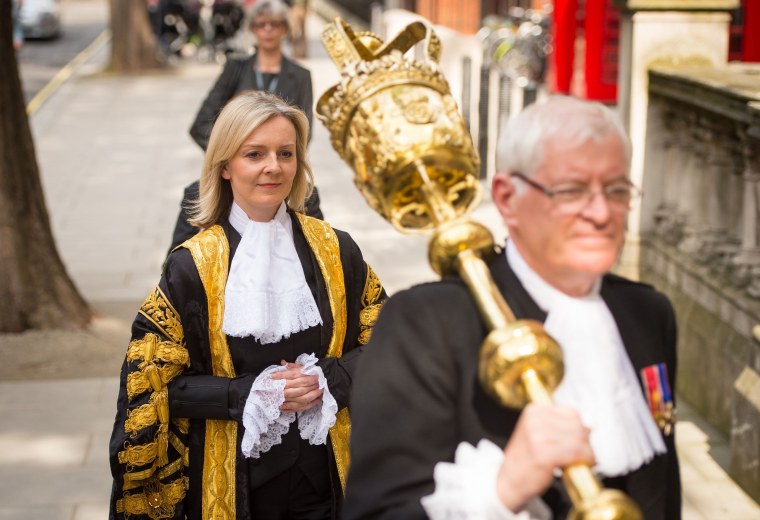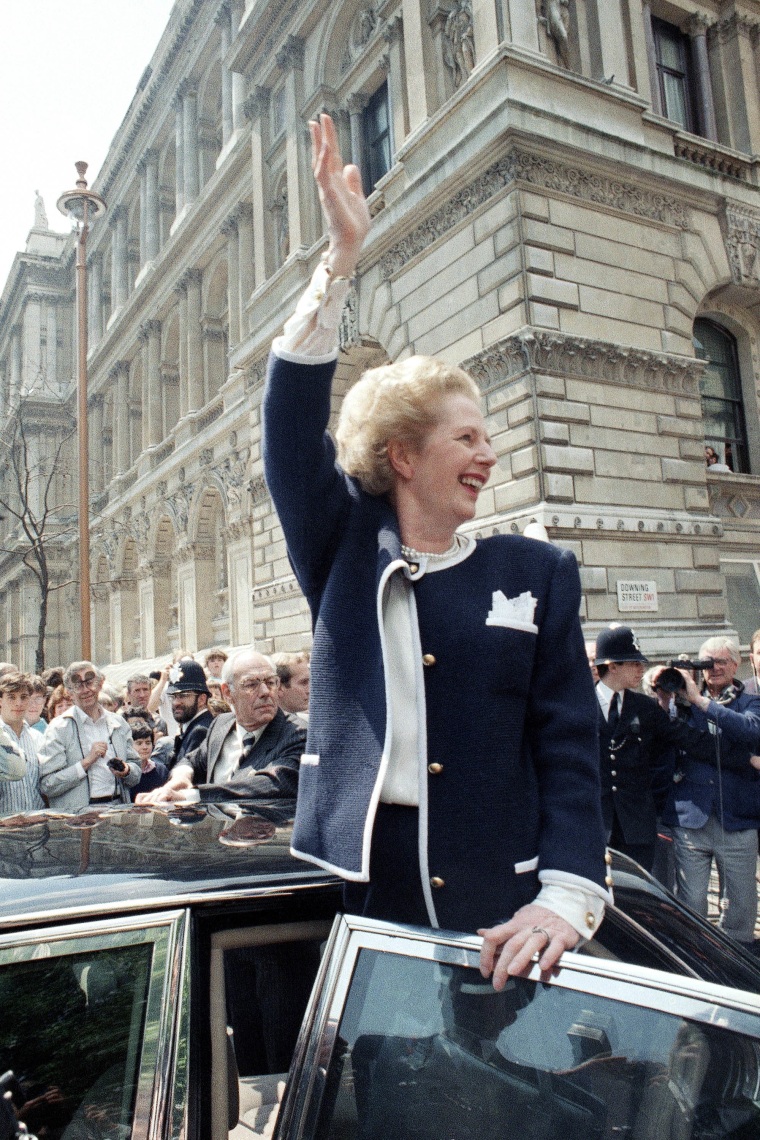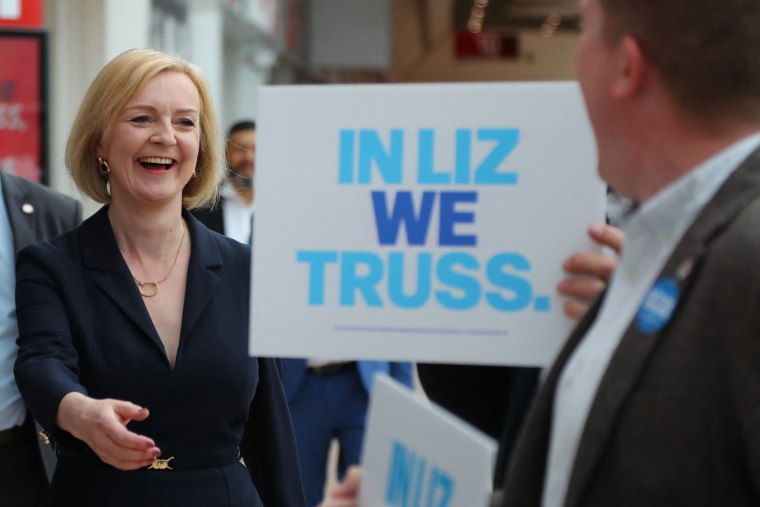Here’s what you need to know about Liz Truss, Britain’s new leader
Liz Truss #LizTruss

For Truss’ critics, the similarities to Thatcher are at best premature and at worst ludicrous.
“I don’t think there’s anything in it. They’re completely different people,” Truss supporter Andrea Andino, 52, insisted outside the venue where Truss was announced the new leader of the Conservative Party on Monday. Andino wore a T-shirt “In Liz We Truss”.
“She is different. I don’t think she will follow Thatcher in any way,” she added.
Timothy Kirkhope, a Conservative member of the upper chamber of the British Parliament, also dismissed the comparison — but for different reasons.
“I regard any comparison between Truss and Thatcher as derisory!” he said in an email.
“I worked as a government whip under Margaret Thatcher. She was a colossus in politics. There is absolutely no way that Truss could ever get anywhere near the achievements of Thatcher,” he said.
Truss herself complained to BBC Radio 4 in July that women tend to get compared to Thatcher whether they resemble her or not.
“I am my own person,” she said.
James Cleverly, who served as education minister under Boris Johnson, echoes these sentiments.
 Liz Truss was installed in 2016 as Britain’s Lord Chancellor, the first woman to hold the role that dates back many centuries. Dominic Lipinski / Press Association via AP file
Liz Truss was installed in 2016 as Britain’s Lord Chancellor, the first woman to hold the role that dates back many centuries. Dominic Lipinski / Press Association via AP file
“She’s a woman in politics, those comparisons are inevitable.” he said “She is Liz Truss, she is her own person.”
“To those of us who’ve studied Thatcher, she’s hardly in the same league, at least on current form,” said professor Tim Bale, an expert on British politics and the Conservative Party at Queen Mary University of London.
While Thatcher was regarded then and now as a conviction politician who embodied her beliefs, Truss has been accused of being a political chameleon, flip-flopping on major policies and criticized for lacking hard-and-fast principles.
She was an activist for the centrist Liberal Democrat Party as a college student.
 Prime Minister Margaret Thatcher waves to the crowd after being re-elected in June 1987. Dave Caulkin / AP file
Prime Minister Margaret Thatcher waves to the crowd after being re-elected in June 1987. Dave Caulkin / AP file
“We do not believe people are born to rule,” she said while arguing passionately for the abolition of the monarchy at the party’s conference in 1994 — a testament to just how far she has traveled politically.
Truss campaigned for Britain to remain in the European Union only to flip sides and later support Brexit once the country had voted to leave in 2016. Commitment to Brexit and unlocking its supposed benefits is now a core pillar of her platform — an attitude that could lead to a heated and expensive legal battle with the European Union and the Republic of Ireland over the complex Northern Ireland protocol.
While Truss said during the Brexit referendum campaign that Britain shouldn’t “spend years in a messy divorce from Europe,” she may be about to preside over exactly this.
Born in Oxford in 1975, Mary Elizabeth Truss is the daughter of John Kenneth, a math professor at the University of Leeds, and Priscilla Truss, a nurse. In the biography section of her website, she describes her parents as “left wing.”
When she was 4, the family relocated to Paisley, a town near Glasgow in Scotland. They moved again in 1985 to the northern English city of Leeds, in West Yorkshire.
Truss frequently refers to herself as a “Yorkshirewoman,” a folksy attempt to contrast her upbringing with the largely affluent, southern English background of many Conservative members and activists.
Throughout her leadership campaign, Truss said her vision of conservatism was inspired by seeing fellow students at the local public high school struggling in an overly bureaucratic, failing system.
“Many of the children I was at school with were let down by low expectations, poor educational standards and a lack of opportunity,” she said at her leadership launch July 14.
Former students and staff at Roundhay and also local politicians disputed Truss’ portrayal, accusing her of unfairly maligning the school for political gain.
Kirkhope was the Conservative MP for Leeds North East when Truss attended Roundhay.
“It is located in one of the most affluent areas of Leeds and it certainly could never be described fairly as a ‘sink school,’’’ he said via email, referring to British terminology for a failing and underachieving school.
 Liz Truss campaigns in the Conservative Party race in Birmingham on Aug. 23.Geoff Caddick / AFP – Getty Images
Liz Truss campaigns in the Conservative Party race in Birmingham on Aug. 23.Geoff Caddick / AFP – Getty Images
Kirkhope also highlights the fact that after graduating from Roundhay, Truss gained entry into one of the most prestigious higher education institutions in the world, the University of Oxford. There she studied philosophy, politics and economics, a traditional first step for many who want to enter British politics.
“Her contentions about her ‘deprived’ background, as the daughter of a university professor are a load of nonsense” Kirkhope said.
After graduating from Oxford in 1996, she abandoned the Liberal Democrats and joined the Conservative Party, to the dismay of her left-leaning father. “He was quite horrified,” she told The Times newspaper in 2012.
After college, Truss worked as a graduate trainee accountant for the energy giant Shell and later the telecommunications company Cable & Wireless. In 2000, she married fellow accountant Hugh O’Leary and they have two daughters.
After a youth on the center-left, university primed Truss for a conversion to the right.
“I met Tories and I realized that they didn’t have two heads and were actually good people,” she told the Daily Mail in 2019.
Truss stood as a Tory candidate in the elections of 2001 and 2005, losing both times. It would take another five years before she was finally elected as the MP for South West Norfolk.
Truss has served in various Cabinet positions since 2012, under the governments of David Cameron, Theresa May and Johnson. It was under Johnson that she was promoted to foreign minister, one of the most powerful positions in government — tasked with leading the transition to a post-Brexit trading regime and forging new diplomatic ties.
The Conservative Party may have ditched Johnson, but his brand of populism looks set to stay under the new prime minister.
“She stayed loyal to Johnson. She’s told the membership what they want to hear on the economy and taxation rather than any hard truths. She’s a fierce Brexiteer and an ‘anti-woke’ warrior,” Bale said.
Truss may be compared to Thatcher, but her critics believe she has much more in common with her predecessor.
“I regret that a Liz Truss premiership would be a continuation of the Boris Johnson style,” Kirkhope said.
A Truss government would be “even more divisive” and include “individuals who are notable only for their extreme or eccentric views,” he said.